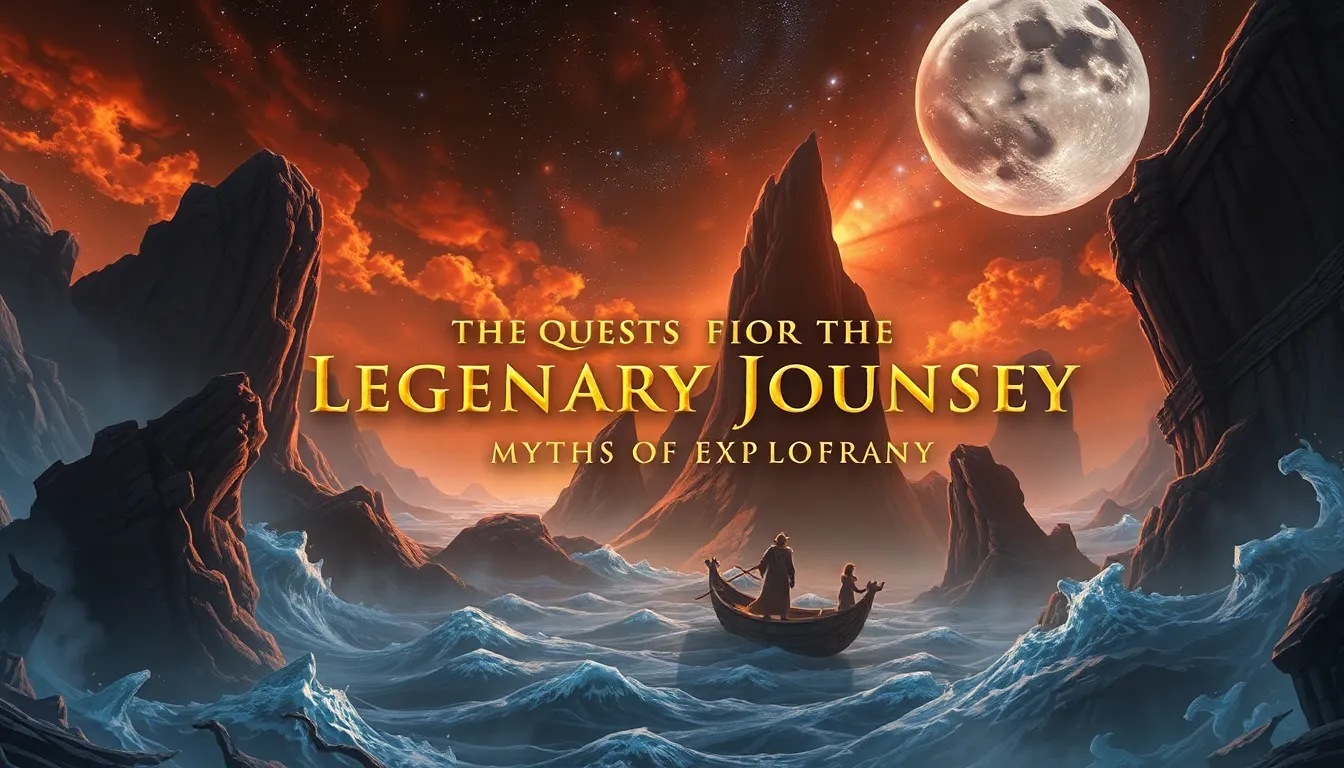The Quest for the Lost Prophecy: Myths of the Future
I. Introduction
Prophecy, a term that conjures images of mystics and oracles, is defined as a prediction of future events often believed to be divinely inspired. Throughout history, prophecies have held significant cultural and spiritual importance, serving as guides for societies navigating the complexities of existence. The concept of lost prophecies adds an intriguing layer to this narrative, suggesting that there are messages and insights yet to be uncovered or understood.
This article aims to explore the myths surrounding lost prophecies, delving into their historical context, nature, and the quests for their rediscovery. By examining these elements, we hope to uncover the implications these lost messages may hold for the future.
II. Historical Context of Prophecies
Ancient civilizations have long engaged with the idea of prophecy. Cultures such as the Mayans, Greeks, and Egyptians produced a wealth of prophetic texts and traditions.
- The Mayans are famous for their calendar, which some interpret as containing prophetic elements related to cycles of time.
- In ancient Greece, oracles like the Oracle of Delphi provided cryptic messages believed to be direct communications from the gods.
- The Egyptians also had a rich tradition of prophecy, often recorded in hieroglyphics on temple walls and papyri.
These prophetic traditions were not merely entertainment; they shaped cultural beliefs, influenced political decisions, and guided personal choices. Over time, the concept of prophecy evolved, adapting to the changing beliefs and values of societies.
III. The Nature of Lost Prophecies
A prophecy is defined as ‘lost’ when it has either been forgotten, misinterpreted, or destroyed over time. The characteristics that often define a lost prophecy include:
- Obscurity: The original text or context may be unknown.
- Fragmentation: Only parts of the prophecy might survive.
- Misinterpretation: The meaning may be altered through translation or cultural shifts.
Historical examples of lost prophecies are abundant. One notable case is the Sibylline Books of ancient Rome, a collection of prophetic texts that were consulted in times of crisis but largely lost to history. The impact of translation and interpretation is crucial, as the meanings of prophecies can dramatically change based on the context in which they are read.
IV. Mythology and Prophetic Legends
Many myths surrounding lost prophecies persist in popular culture. A prime example is the Prophecy of Nostradamus, whose cryptic verses have been interpreted in countless ways regarding global events.
The interplay between myth and reality in these narratives often blurs the lines of truth, creating a rich tapestry of stories that resonate with contemporary audiences. The cultural significance of these myths is profound, as they often serve as cautionary tales or sources of hope.
V. The Quest for Rediscovery
In modern times, the quest for rediscovering lost prophecies has gained momentum. Expeditions and research initiatives are focused on uncovering ancient texts and artifacts that may hold prophetic insights.
- Archaeological digs often aim to find manuscripts or inscriptions that could provide new understandings of ancient prophecies.
- Advancements in technology, such as imaging techniques and digital archiving, have revolutionized the study of ancient texts, allowing researchers to analyze documents previously deemed illegible.
Successful rediscoveries, such as the Dead Sea Scrolls, have profound implications, offering fresh insights into ancient beliefs and prophecies that continue to shape modern thought.
VI. Prophecies and Future Predictions
The influence of lost prophecies on current and future societal beliefs is significant. Many people look to historical prophecies for guidance in navigating contemporary challenges.
The psychological impact of prophetic beliefs can affect decision-making processes, as individuals and communities may align their actions with perceived prophecies. However, this raises ethical considerations regarding the interpretation and potential misuse of prophetic messages.
VII. The Intersection of Science and Prophecy
Scientific advancements both challenge and support prophetic claims. While some may dismiss prophecies as mere superstition, others find parallels between scientific predictions and ancient texts.
- For instance, climate change predictions echo warnings found in various prophetic traditions about the consequences of human actions.
- Interdisciplinary studies combining theology, archaeology, and science can provide a more nuanced understanding of prophecies and their implications.
VIII. Skepticism and Criticism
The skeptical viewpoint on prophecies often challenges their validity, arguing that many prophecies are vague or can be interpreted in multiple ways. This skepticism plays a crucial role in the discourse surrounding prophetic narratives.
Debunking common myths and misconceptions about prophecies can illuminate the psychological and cultural factors at play. Criticism encourages a more rigorous examination of the texts and their historical contexts, influencing how lost prophecies are interpreted today.
IX. The Future of Prophecy in a Modern World
As we navigate an increasingly complex world, the quest for understanding and interpreting prophecies remains relevant. The allure of uncovering lost prophecies continues to inspire both scholars and enthusiasts alike.
In conclusion, the myths surrounding lost prophecies are not merely relics of the past; they reflect our ongoing search for meaning and understanding in an uncertain future. Whether viewed through the lens of history, mythology, or modern science, the quest for these lost insights may ultimately shape our collective journey ahead.



